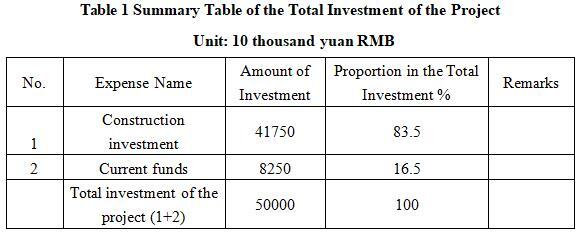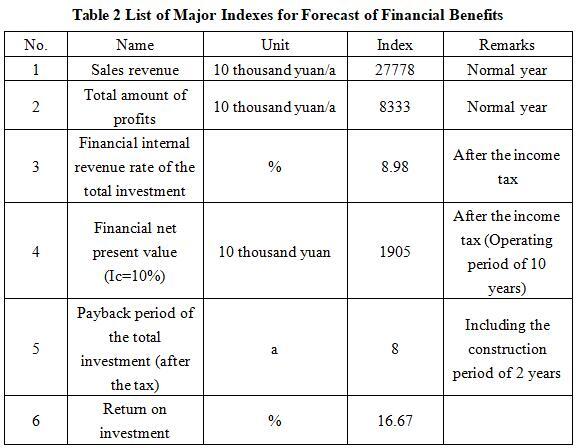Modern Service Industry
5G Smart Logistics Service Platform Project of Songyuan City
1. Introduction to the Project
1.1 Project background
1.1.1 Product introduction
With the popularization and application of the 5G technology, it will promote the deep application and integration of car networking big data in various industries. The coverage of connected car services is becoming increasingly widespread, connecting multiple industries such as automobiles, transportation, energy, logistics, and commercial real estate. The Internet of Vehicles is an important development direction of 5G in the logistics field. It is based on the Intranet, the Internet of Vehicles and the mobile Internet in vehicles, integrating sensors, RFID, data mining, automatic control and other related technologies. According to the agreed communication protocols and standards, the dynamic mobile communication between vehicles and public networks is realized during the interaction between vehicles, roads, pedestrians and the Internet. 5G can solve the problems of vehicle networking in terms of security, communication standards, and architecture, making it truly applicable to daily operations such as unmanned driving and intelligent trailers in logistics. This can improve the automation level of goods transportation, reduce logistics costs, minimize resource consumption and waste, and enhance the service quality level of the logistics industry. It provides a theoretical basis and practical platform for achieving more intelligent, information-based, and automated intelligent logistics.
The project is located in Ningjiang Economic Development Zone, Jilin Province, integrating the 5G technology to create a smart logistics service platform, promoting the rapid development of the local logistics industry towards intelligence, and improving the efficiency of local logistics services.
1.1.2 Market prospect
(1) Analysis of the current situation of 5G connected car intelligent logistics
With the continuous development and widespread application of the 5G technology, the logistics industry is undergoing unprecedented changes. The 5G technology has injected new vitality into smart logistics with its outstanding performance, driving the sustained development of the entire industry. With the help of the 5G technology, logistics companies can adopt more efficient, accurate, and intelligent solutions, significantly improving economic benefits.
This technology not only significantly improves the informatization level of logistics enterprises, enabling them to obtain, process, and analyze data faster, thereby improving decision-making efficiency and execution, but also significantly reduces the probability of data loss or errors, enhancing the operational stability of enterprises. The high speed, low latency, and large connectivity characteristics of the 5G technology enable logistics companies to achieve more refined location tracking and precise delivery, thereby improving customer satisfaction.
In addition, the 5G technology has promoted the research and application of intelligent logistics equipment and systems. The collaborative work of unmanned vehicles, drones, and automated warehouses not only improves operational accuracy and safety, but also reduces labor costs. With the support of the 5G technology, these intelligent devices can operate more efficiently and improve logistics efficiency.
At the same time, the 5G technology provides comprehensive security monitoring and operational optimization methods for logistics enterprises. Real-time monitoring, intelligent warning, and data analysis functions help improve the operational efficiency and service quality of enterprises, and meet the diverse needs of customers. Through the 5G technology, logistics enterprises can achieve comprehensive monitoring of the logistics process, timely discover and solve potential problems, and ensure the smooth progress of the logistics process.
In summary, the application of the 5G technology has played a positive role in promoting the development of the logistics industry. With the continuous improvement and widespread application of the 5G technology, smart logistics will become an important development direction for the logistics industry. In the future, the logistics industry will continue to leverage the power of the 5G technology to drive innovation and progress throughout the industry. Therefore, logistics companies need to keep up with technological trends, continuously optimize existing equipment and systems to improve efficiency, reduce costs, and provide customers with better quality services. Driven by the 5G technology, the logistics industry will usher in broader development prospects.
(2) Prospect prediction of 5G smart logistics service platforms
With the widespread application of the 5G technology, the development prospects of smart logistics service platforms are increasingly promising. With the high speed, large bandwidth, and low latency of 5G networks, the logistics industry will usher in revolutionary changes. The following are specific aspects of the intelligent logistics service platform utilizing the 5G technology to achieve efficient and intelligent operation:
Firstly, with the high-speed and low latency characteristics of 5G networks, logistics information can be transmitted and processed in real-time, greatly improving the efficiency of logistics operations. Compared with traditional logistics, real-time information query and monitoring can be achieved from order placement to tracking of goods, and then to customer receipt. This not only reduces information asymmetry and delays, but also provides customers with more convenient and accurate services.
Secondly, through the 5G network, real-time location information of goods can be obtained, and logistics routes can be optimized through artificial intelligence algorithms to reduce transportation costs and time. This will enable logistics companies to minimize costs and improve their profitability while ensuring service quality.
Thirdly, with the help of the 5G network’s Internet of Things technology, intelligent management of warehousing facilities can be achieved. By deploying various sensors and cameras, real-time monitoring of temperature, humidity, lighting, and other information in the warehouse can be achieved to ensure the safe storage of goods. Meanwhile, intelligent warehouse management can also improve the efficiency of searching and retrieving goods, reducing manual intervention and error rates.
Fourthly, with the help of 5G networks, unmanned vehicles and drone delivery can be achieved. This will significantly reduce the cost of manual delivery and improve the accuracy and speed of delivery. Especially in cities, the delivery of unmanned vehicles and drones will solve the “last kilometer” problem, improve the delivery efficiency and customers’ satisfaction.
In addition, the smart logistics service platform can also provide customers with value-added services such as intelligent prediction and risk assessment, creating greater value for customers. In the future, the intelligent logistics service platform will break through the norm and integrate cutting-edge technologies such as autonomous driving and drones, creating a new era of “Internet of Things” logistics. During this process, the smart logistics service platform can track the flow of goods throughout the entire process, ensuring that every item can be delivered to its destination in perfect condition. Through intelligent data processing and analysis, logistics platforms can also provide customers with more refined operational management services, giving enterprises greater advantages in fierce market competition.
In summary, with the popularization and application of the 5G technology, smart logistics service platforms will usher in a era of rapid development. It will bring more efficient and intelligent logistics operations, better customers’ experience, and lower logistics costs. Therefore, the smart logistics service platform has broad development prospects and market potential. The future smart logistics service platform will continue to expand its application scenarios and service scope.
1.1.3 Advantageous conditions of project construction
(1) Policy advantages
The Notice of the National Development and Reform Commission on Printing and Distributing the Opinions on the Implementation of “Internet +” Efficient Logistics: logistics industry is an important part of the modern service industry, and it is also a prominent weakness in the current economic and social development. The development of “Internet +” efficient logistics is an important measure to appropriately expand aggregate demand, promote structural reform, especially the supply side structural reform, and is of great significance to effectively reduce enterprise costs, facilitate people’s lives, promote employment, and improve total factor productivity. Deeply implement the Guiding Opinions of the State Council on Actively Promoting the “Internet +” Action, vigorously promote the development of “Internet +” efficient logistics, and improve the quality, efficiency and safety of logistics in the whole society.
The "Guidelines for the Construction of the National Connected Vehicle Industry Standard System (Intelligent Connected Vehicles) of the Ministry of Industry and Information Technology points out that by 2025, the system will have formed an intelligent connected vehicle standard system that can support high-level autonomous driving, and more than 100 intelligent connected vehicle standards will have been formulated, covering intelligent automatic control, networked collaborative decision-making technology, and technical requirements and evaluation methods related to autonomous driving functions and performance in typical scenarios. This will promote the integration and development of “intelligence+networking” in intelligent connected vehicles, as well as the comprehensive promotion and popularization of technology and products.
The State Council issued the Development Plan for a New Generation of Artificial Intelligence, which pointed out that in terms of intelligent vehicles, we should strengthen the integration and matching of technologies such as vehicle awareness, automatic driving, Internet of Vehicles, and the Internet of Things, develop intelligent traffic awareness systems, and develop industrial Internet supporting intelligence and Internet of Vehicles for unmanned driving in terms of network infrastructure.
(2) Location and transportation advantages
The area is well connected by railways, highways, and waterways. The Beijing-Harbin, Changchun-Baishan, Tonghua-Rangluhu railways, as well as No. 203 Expressway, No. 102 National Highway, Tumen-Ulanhot, Kaifang and other national and provincial highways connect the east, west, north and south. It only takes 20 minutes to reach Heilongjiang through the Songzhao Bridge. The Songyuan section of the Daqing-Guangzhou Expressway has been completed and opened to traffic, and the Songyuan-Taolaizhao Railway has been put into operation. The Changchun-Baishan Railway officially opened in 2018, and the Songyuan Airport was put into use in 2017. Ningjiang has become one of the few cities in the central part of Northeast China with a three in one transportation system of waterway, land and air. Therefore, it can be said that Ningjiang is connected to the world.
Ningjiang District is located at the junction of Jilin Province, Heilongjiang Province, and Inner Mongolia, between the Changchun-Harbin Economic Belt and the Harbin-Daqing-Qiqihar Industrial Corridor. It borders Fuyu County to the east, Qianguo County to the west and south, and Zhaoyuan County in Heilongjiang Province across the river to the north. As an important transportation hub and logistics distribution center in Northeast China, the area is well connected by highways, railways, and waterways. The Beijing-Harbin and Changchun-Baishan railways pass through the city, while No. 203 National Highway, No. 102 National Highway, Beijing-Harbin, Daqing-Guangzhou, Tumen-Ulanhot, Wuchang-Horqin Right Middle Banner and other national and provincial highways connect the east, west, north and south. The waterway from Songyuan Port provides direct access to Jilin City, Qiqihar City, Harbin City, and Jiamusi City. It takes 20 minutes by air to reach Songyuan Chaganhu Airport, and 90 minutes to reach Changchun Airport or Harbin Airport. Songyuan Inland Port can complete all procedures such as customs declaration, inspection and quarantine within the country, and exported goods can be directly cleared and delivered to the port. It can be said to be a regional center, accessible from all directions.
(3) Talent advantages
As an emerging industrial city, Songyuan has accumulated a large number of technical talents since its establishment. Since 2019, Songyuan City has launched a comprehensive “135” talent policy and simultaneously introduced “1 opinion+13 plans”. Among them, the “Heart-to-Heart Bridge” plan for Songyuan’s talents in other places is an important basic project. Through a series of innovative measures, it strengthens the care and service for Songyuan’s talents in other places for the hometown, leverages the network and intellectual advantages of Songyuan’s talents in other places, and opens up channels for them to give back to the hometown. It effectively transforms the strong patriotic sentiment of overseas talents into a “source of power” to support the revitalization and development of their hometown. All personnel required for this project will be recruited from the society through examinations based on merit.
1.2 Contents and scale of project construction
The project covers an area of 80000 square meters and has a building area of 40000 square meters. The construction contents include an intelligent monitoring center for vehicle networking, a logistics information collection center, building computer rooms and power supply, purchasing network equipment such as servers and satellite communication, and supporting service facilities, etc.
1.3 Total investment of the project and capital raising
The total investment of the project is 500 million yuan, including the construction investment of 417.5 million yuan.

1.4 Financial analysis and social evaluation
1.4.1 Main financial indexes
After the project reaches the production capacity, its annual sales revenue will be 277.78 million yuan, its profit will be 83.33 million yuan, its investment payback period will be 8 years (after the tax, including the construction period of 2 years) and its return on investment will be 16.67%.

Note: “10 thousand yuan” in the table is in RMB.
1.4.2 Social evaluation
Improving the logistics efficiency: The application of the 5G technology can significantly enhance the transportation efficiency of the logistics industry. Smart devices connected through 5G networks can track the real-time location and transportation status of goods, reducing delays and losses during transportation. Meanwhile, the 5G technology can also optimize transportation routes, reduce empty driving rates and waste. All of these will bring significant social benefits, such as reducing logistics costs, improving logistics efficiency, and reducing resource waste.
Creating job opportunities: The construction and operation of the 5G smart logistics service platform require a large number of talent support, including technical research and development, equipment maintenance, and operation management. This will create a large number of employment opportunities for Songyuan City and drive its economic development.
In summary, the 5G Smart Logistics Service Platform Project in Songyuan City has significant social benefits and will promote the development of the logistics industry, smart city construction, and economic development in Songyuan City.
1.5 Cooperative way
Sole proprietorship, joint venture or cooperation
1.6 What to be invested by the foreign party
Funds, operation management or technology
1.7 Construction site of the project
Jilin Ningjiang Economic Development Zone
1.8 Progress of the project
The project cooperation plan has been prepared.
2. Introduction to the Partner
2.1 Basic information
Name: Project Service Center of Ningjiang District, Songyuan City
Address: Floor 2, Old Building, Bureau of Materials and Equipment, Ningjiang District, Songyuan City
2.2 Overview
Ningjiang District was established on December 12, 1995. It is a modern city with a long history and modern civilization, suitable landscape scenery and cultural charm, promoting economic development and social harmony, and rich cultural heritage of Manchu and Mongolian. Located in the central and western part of Jilin Province, at the confluence of the Songhua River, Songhua River’s main stream, and Nenjiang River. This place is blessed with abundant resources and talented people, and is known as the “granary, meat warehouse, fishing village, and oil sea”. Ningjiang District is the political, economic, and cultural center of Songyuan City, covering an area of 1313 square kilometers. It governs 17 streets, 62 communities, 5 townships, 82 administrative villages, and three industrial parks, with a total population of 600000, including 100000 agricultural population. There are more than 20 ethnic groups including Han, Manchu, Mongolian, Hui, and Korean.
Since its establishment, the total economic output of Ningjiang has continued to grow and its comprehensive strength has significantly improved. Ningjiang District has jurisdiction over Jilin Ningjiang Economic Development Zone, Songyuan Port Industrial and Trade Concentration Zone, and Yangtze River Tourism Development Zone. Among them, Jilin Ningjiang Economic Development Zone is a provincial-level industrial concentration zone. The development pattern of “one zone, nine parks” and the standard of “seven connections and one leveling” in the starting area have attracted a large number of enterprises to invest and settle down, with 282 registered enterprises in the concentration zone. The modern agricultural and livestock product processing industry and green agriculture are developing rapidly. There are currently 18 national vegetable standard parks, 4 national and provincial leisure agriculture and rural tourism parks, 6 provincial greenhouse film vegetable parks, 7 provincial agricultural industrialization leading enterprises, and 219 fruit and vegetable varieties certified with “three products and one standard”. After years of development and construction, leading industries such as petrochemicals, equipment manufacturing, and deep processing of agricultural and sideline products as well as emerging industries such as tourism and leisure, and new building materials have been initially formed.
2.3 Contact method
2.3.1 Contact method of the partner
Contact unit: Project Service Center of Ningjiang District, Songyuan City
Contact person: Gao Lixiang
Tel: +86-438-3086611
2.3.2 Contact method of the city (prefecture) where the project is located
Contact unit: Investment Promotion Service Center of Songyuan Bureau of Commerce
Contact person: Yu Lili
Tel: +86-18004388787


